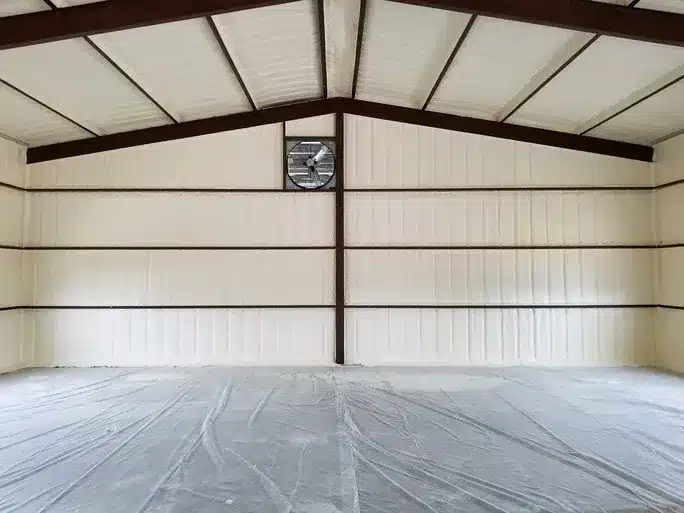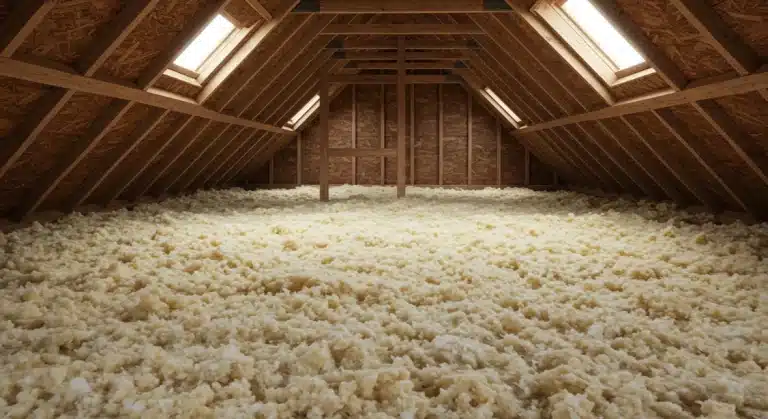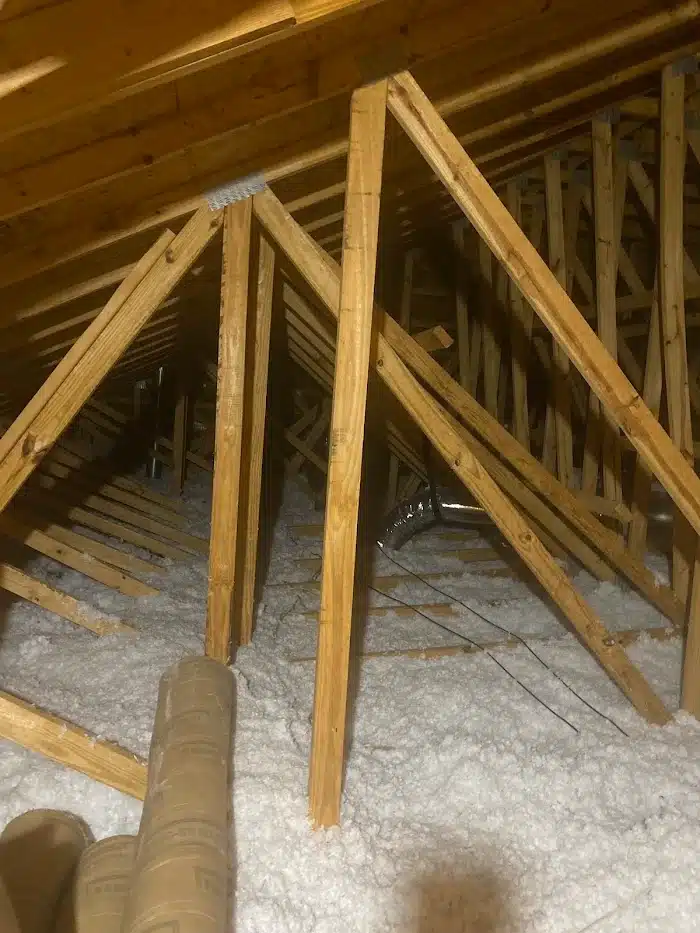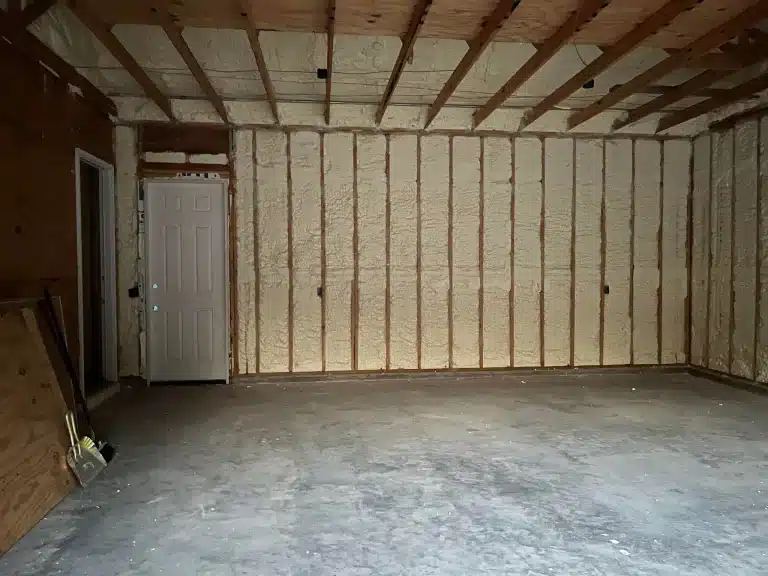Spray foam insulation improves HVAC efficiency in Atmore homes by creating an air-tight thermal barrier that limits heat transfer and infiltration. In humid, hot environments like Atmore, this directly reduces cooling loads, decreases HVAC runtime, and stabilizes indoor temperatures. Homeowners often see measurable drops in utility bills and more consistent comfort year-round.
Compared to traditional insulation types, spray foam eliminates common energy losses around gaps, wall penetrations, and attic hatches. Closed-cell foam also contributes to building envelope integrity by reducing moisture intrusion, which helps protect HVAC systems from strain due to high indoor humidity.
Experience from regional installations confirms consistent gains in energy efficiency when Spray Foam Insulation is applied in attics, crawl spaces, and wall cavities. The following sections provide technical data, real-world comparisons, and practical insights for homeowners evaluating this option.
Benefits of Spray Foam for HVAC Performance
Why Efficiency Gains Matter in Atmore’s Climate
- High summer humidity raises cooling demand.
- Gaps and leaks lead to conditioned air loss.
- Moisture infiltration strains air conditioning systems.
Spray foam helps by sealing leaks and limiting outside air exchange. In a region with 90+ days of high humidity annually, this can materially improve indoor comfort and reduce HVAC wear.
Comparison Table: Insulation Types and HVAC Impact
| Insulation Type | Air Sealing Ability | R-Value per Inch | Moisture Barrier | Impact on HVAC Load |
|---|---|---|---|---|
| Spray Foam (Closed) | High | 6.0–7.0 | Yes | High Reduction |
| Spray Foam (Open) | Moderate | 3.5–4.0 | Partial | Moderate Reduction |
| Fiberglass Batt | Low | 2.9–3.8 | No | Low Reduction |
| Blown-In (Cellulose) | Moderate | 3.2–3.8 | No | Moderate Reduction |
Bonus Tip
Inspect attic vents and wall penetrations before application. Sealing these first maximizes spray foam effectiveness.
Technical Data and Performance Metrics
Insulation Effect on HVAC Runtime (Case Study: South Alabama Homes)
| Parameter | Pre-Installation Avg | Post-Spray Foam Avg |
|---|---|---|
| Daily HVAC Runtime (Summer) | 9.5 hrs | 5.6 hrs |
| Indoor Relative Humidity (%) | 62% | 47% |
Source: Regional performance data collected from retrofit projects across Baldwin and Escambia Counties (2022–2024).
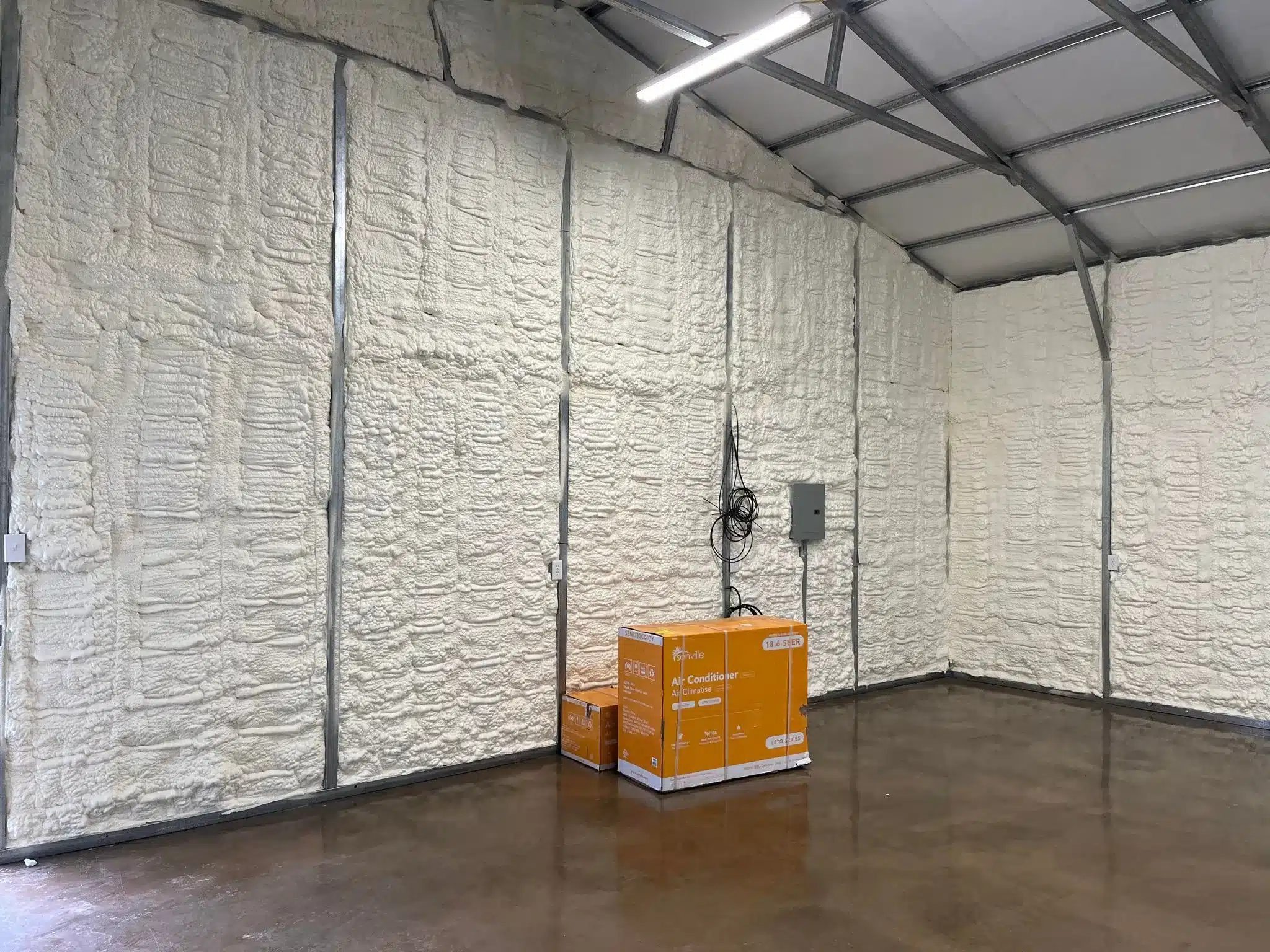
Things to Consider Before Making a Decision
- Structure Access: Open wall cavities or exposed attic areas simplify installation.
- HVAC Sizing: Reduced load may require reevaluating equipment capacity.
- Moisture Control: Closed-cell spray foam provides a vapor barrier; open-cell does not.
- Budget Factors: Spray foam typically carries higher upfront cost.
- Building Age: Older homes often benefit more due to poor existing insulation.
Bonus Tip
In crawl-space homes, applying closed-cell foam to subfloors helps block rising moisture and air infiltration.
Common Questions from Homeowners
What type of spray foam is best for HVAC efficiency?
Closed-cell provides the highest R-value and moisture resistance, making it ideal for HVAC support.
Can spray foam reduce HVAC noise?
Yes. Open-cell spray foam absorbs airborne sound and can lower equipment noise transmission.
Will I need new HVAC equipment after insulation?
Possibly. Downsizing may be recommended if the existing system becomes oversized.
Is spray foam safe around HVAC ductwork?
Yes, when professionally installed using approved materials and techniques.
Relevant Services Provided by Prestige Insulation Solutions
- Spray Foam Insulation: Applied to walls, attics, and crawl spaces to minimize air leakage and energy loss.
- Blown-In Insulation: Suitable for attic retrofits where access to cavities is limited.
- Fiberglass Insulation: Offers cost-effective thermal protection for less demanding zones.
- Insulation Removal: Prepares old structures for upgraded solutions with safe material extraction.
Get Expert Insulation Guidance
To determine whether spray foam insulation is right for your HVAC system and building structure, speak with a local specialist. Prestige Insulation Solutions offers experienced evaluation and application based on years of work across Atmore and surrounding areas.
Contact Information:
Phone: (850) 429-4969
Email: [email protected]
Frequently Asked Questions
How long does spray foam last in a residential setting?
Properly installed spray foam can last 30–50 years without degradation.
Does spray foam insulation qualify for energy rebates in Alabama?
Yes. Some utility providers and state programs offer incentives for energy-efficient insulation upgrades.
Can I install spray foam over existing insulation?
Not recommended. Removal ensures proper adhesion and performance.
What maintenance does spray foam insulation need?
Minimal. Occasional visual inspections for settling or damage are sufficient.
Is there a difference in performance between wall and attic spray foam?
Yes. Attic applications generally yield more HVAC savings due to greater exposure to outside air.


